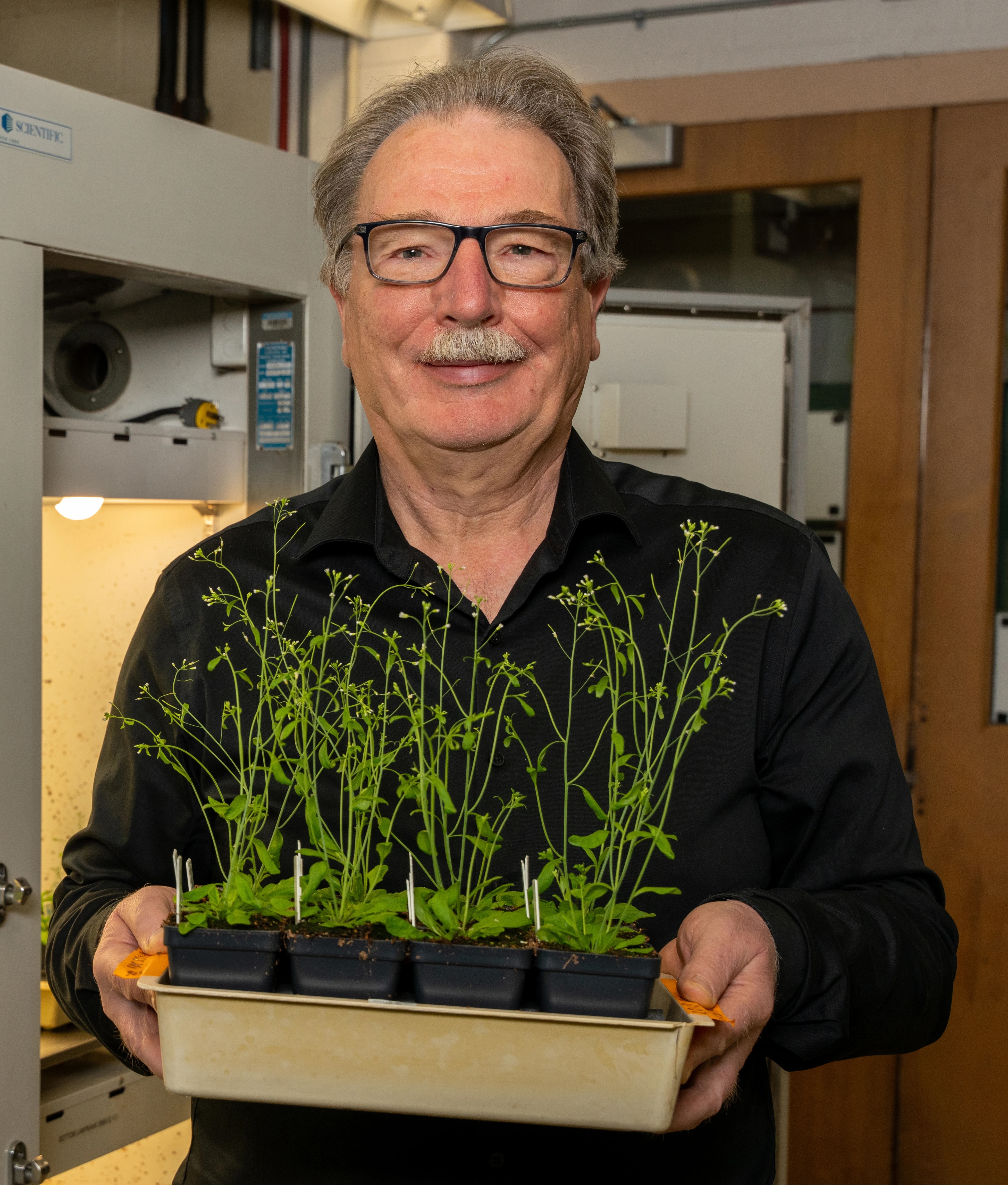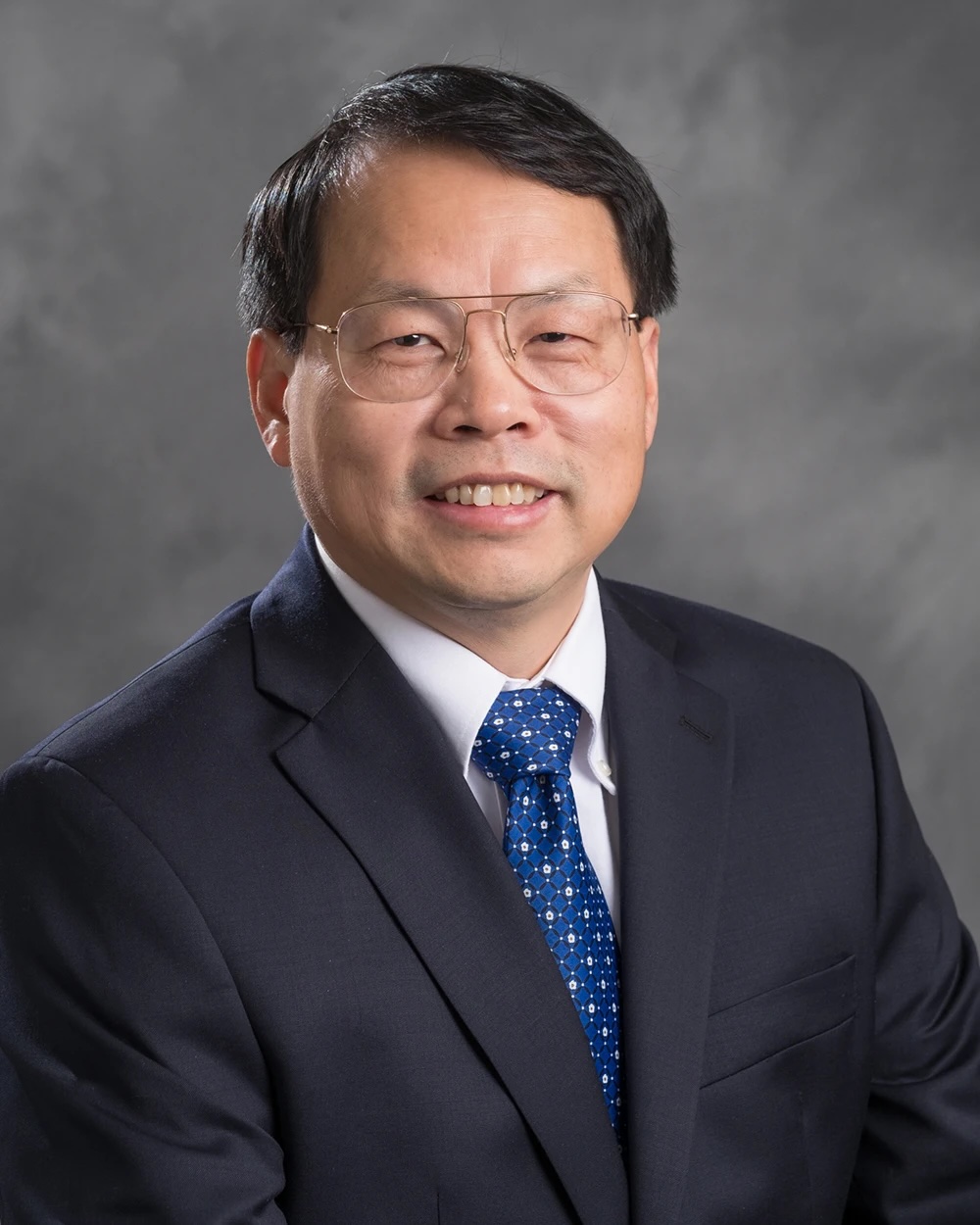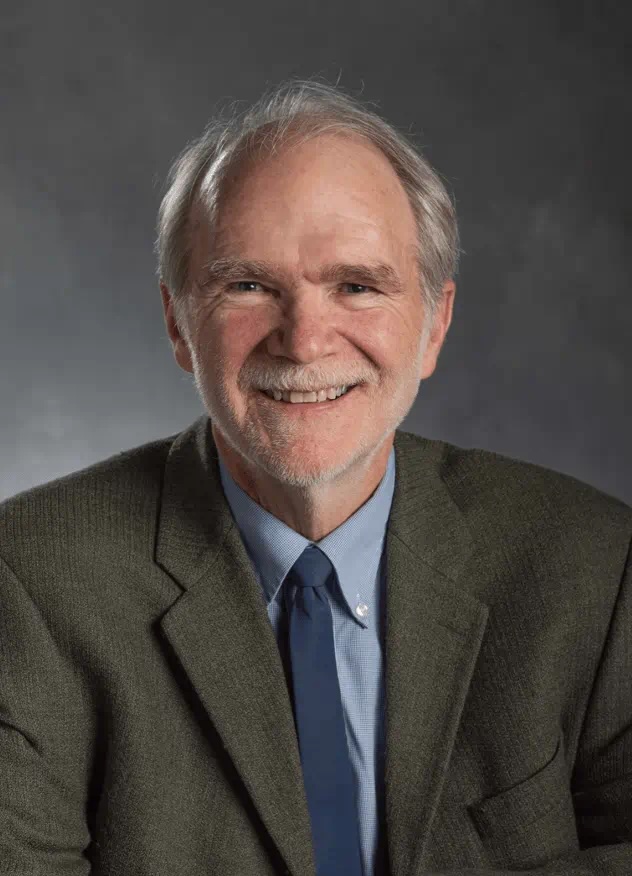This spring, MSU achieved a rare and remarkable milestone: three of our faculty were elected to the National Academy of Sciences. Congratulations to Professors Christoph Benning, Jianguo "Jack" Liu, and G. Philip Robertson for earning one of the highest honors in science. Their work in plant biochemistry, sustainability, and ecosystem science represents research excellence at its finest.
Several former colleagues were inducted as well. Robin Buell, who served at MSU as a University Distinguished Faculty and MSU Research Foundation Professor from 2007 to 2021, continues to make an impact in her current role at the University of Georgia.
Two former MSU postdocs—Joe Zhou (now at University of Oklahoma) and Valeria Souza (now at Universidad Nacional Autonoma de Mexico) were also elected.
These recognitions for current and former colleagues demonstrate the power of MSU as a place to develop and nurture creative and scientific talent.
Elected Members:

Christoph Benning is a University Distinguished Professor and MSU Research Foundation Professor in the College of Natural Science. He is an inventor and one of the world’s foremost experts in plant lipid metabolism, which is essential for various plant functions. Since 2015, Benning has served as the director of the MSU-Department of Energy Plant Research Laboratory.
During his 40-year career, Benning has discovered several new genes and their functions. He identified the WRINKLED1 protein in Arabidopsis plants. When “switched on,” this protein helps plants produce more vegetable oil, which we rely on for cooking and biofuel. Benning’s lab has also been studying how plants respond to stressful conditions so that researchers can create plants that are resilient to these environments. He has received numerous accolades such as MSU’s Innovator of the Year Award in 2018 and was the first MSU researcher to become a senior member of the National Academy of Inventors in 2022.

Liu is a University Distinguished Professor and the Rachel Carson Chair in Sustainability in the College of Natural Science and the College of Agriculture and Natural Resources. He is also the founder and director of the Center for Systems Integration and Sustainability. His trailblazing work understanding the complex interactions in the giant panda habitat in China has evolved into a pioneering career in systems integration for global sustainability — combining natural and social sciences, policy and technology for understanding and promoting global environmental sustainability. Liu’s research has also contributed to recovering panda habitat while improving the well-being of the people who live across the panda distribution range.
His award-winning telecoupling and metacoupling frameworks, powerful tools applied across the world, have uncovered hidden and complex cascading impacts of human activities on sustainability in specific places around the world. Liu’s innovative work has been adopted by not only the scientific community but also government agencies and international organizations such as the United Nations.

Robertson is a University Distinguished Professor of ecosystem science with the W.K. Kellogg Biological Station in the College of Agriculture and Natural Resources and College of Natural Science. He is an internationally recognized crop and soil scientist and ecosystem ecologist. His more than four decades of research have focused on the biogeochemistry and productivity of field crop ecosystems and landscapes.
Robertson has made significant contributions to understanding how farming practices influence climate stability, water quality and crop yields for corn, soybeans and wheat. He has led several of the nation’s most influential agricultural research programs, including the National Science Foundation’s Long-Term Ecological Research program or LTER from 1988 to 2017. He also played a foundational role in three of MSU's major agroecology initiatives at KBS: the LTER, the USDA’s Long-Term Agroecosystem Research Network and the Department of Energy’s Great Lakes Bioenergy Research Center, for which he served as science director from 2017 to 2021. Robertson has also made considerable contributions to science policies tunities to collaborate through the years,” said Robertson. “MSU has been an exciting place to advance the science I care most about and to teach the next generations.”by serving on national committees.
